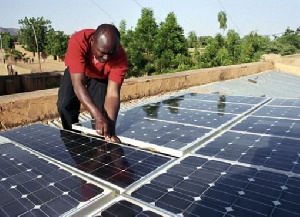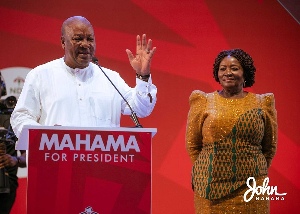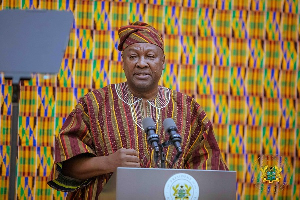By Samuel Hinneh
Ghana is really endowed with many sources of energy. Ranging from hydro, solar, wind, biogas, among others, the country is poised to tap into these as a way to generate sustainable energy and safeguard the environment. Renewable energy has gradually become the choice of many countries given the huge impact of fossil fuels on the environment and climate change generally.
Many countries where even renewable energy are not very much in abundance are heavily investing in that sector. Many people therefore cannot fathom the decision of the Volta River Authority (VRA) to invest in coal as a source of energy generation, especially as countries that have used it are shutting down coal power plants to venture into renewable energy.
The Ghana Government in collaboration with a Chinese company, Shenzhen Energy Group Co. Ltd (SEC) is planning to set up a 2X350 MW supercritical coal-fired generating plant at the cost of $1.5 billion at Ekumfi Aboano, in the Ekumfi District of the Central Region. A country that has signed the Paris climate change deal and sustainable development goals, it does not speak well to achieve these targets. Civil society in the country are very concern about the issue which can put many at risk. For instance 350 Ghana Reducing Our Carbon, recently held a press conference in Accra, to urge the VRA and the government to rescind the decision to embark on such project and rather channel resources into renewable energy. It is rightly so, as world leaders are working hard towards a clean environment, Ghana cannot venture into any project that ultimately has serious repercussions on the environment and climate in general.
Speaking to the 350 Ghana Reducing Our Carbon National Coordinator, Mr Chibeze Ezekiel, he says there is a far better alternative to coal which is renewable energies such as wind, solar and biogas because clean energy industries employ far more people than the coal industry.
“The U.S. solar industry alone is beginning to overtake the coal mining sector with higher employment figures, according to 2014 data released by the Solar Foundation. “If Rwanda (a war-torn nation) is excelling in the use of renewable energies to generate electricity, what then is the excuse of Ghana? Ghana must stop the coal dream and aggressively pursue Renewables as seen occurring in countries,” he states. Of course, emissions from coal are very hazardous to human development. There are reported cases where people in South Africa, have died from coal related cases and the list goes on. South Africa has been mining coal for centuries and it serves as their main source of energy which also brings about complications they can’t solve. Mpumalanga is a coastal town in South Africa and close to Swaziland. There are 12 coal-fired plants located in almost all the communities in Mpumalanga set up by ESKOM, an energy producing company. Communities such as Tutuka, Majuba, Komati, Camden, Kondal, Grootvlei among others are all suffering currently from the thick smokes emitting from the plants. A research done by Groundwork proves that, 2,200 deaths in South Africa are caused by coal fired plants.
It cannot be regarded as safe regardless of the technology that may be used to produce it. Even though, the VRA says it would make use of supercritical technology to produce what it refers to as clean coal, the efficiency level of that cannot be clean enough and poses danger to the climate and environment. The proposed project would build “supercritical” coal-fired power plants, a type of coal plant commercialized in the 1960s. This puts coal development in Ghana at odds with the trend in most other countries, including developing countries like China to build cleaner coal plants or limit coal development altogether because of pollution and climate change.
In fact, in March of this year, China halted the construction of coal plants in 15 regions, and the Chinese have passed a law requiring all new coal plants to meet the efficiency of an ultra-supercritical plant or better. Whatever it may, coal is dirty and remains so. Burning coal emits roughly twice the pollution of burning gas, making it the largest contributor to climate change. Noting that the average lifespan of a coal plant is over 50 years, the International Energy Agency has called for inefficient coal-fired plants to be phased out as a means to meet the global climate targets. Experts believe that solving the threat of global warming will require countries to capture and store the carbon dioxide released by coal plants, but the plans for the Ghanaian plants do not include carbon capture and storage.
Ghana does not even have coal and will have to depend on importation of coal from South Africa, Colombia. In terms of sustainability, it leaves room for many questions to be asked. The huge cost that will be incurred from the transportation of coal from the countries, and cost of the coal, all put together in relation to others make no financial justification to opt for this, when all that resources can be used for more sustainable renewable energy project. And of course there is an additional, built-in costs of the plan.
Construction, maintenance, debt service, and decades of importing a fuel that Ghana does not have domestically will be extremely costly and will ultimately mean higher energy tariffs. This does not even take into account the environmental and social costs of burning coal, including the toll on public health. The loan behind this coal plant stands at a whopping $1.5 billion. Investing in renewable energy means there would be no need to pay all that transportation costs.
It is the wish of every Ghanaian that there is excess energy generation, a prerequisite for industrial development, however, attaining that does not mean putting the health and environment at full risk. Ghanaians deserve to have energy that may not put their livelihoods and health in jeopardy, but enhance their way of life and promote sustainable development.
With a lot of sun and wind available, there are many ways that the application of science and technology can facilitate the deployment of renewable energy to power the entire country and industrial sector. Coal is not the answer but a disaster as far as energy generation is concerned and Ghana cannot afford to take that road.
Opinions of Wednesday, 12 October 2016
Columnist: Hinneh, Samuel















